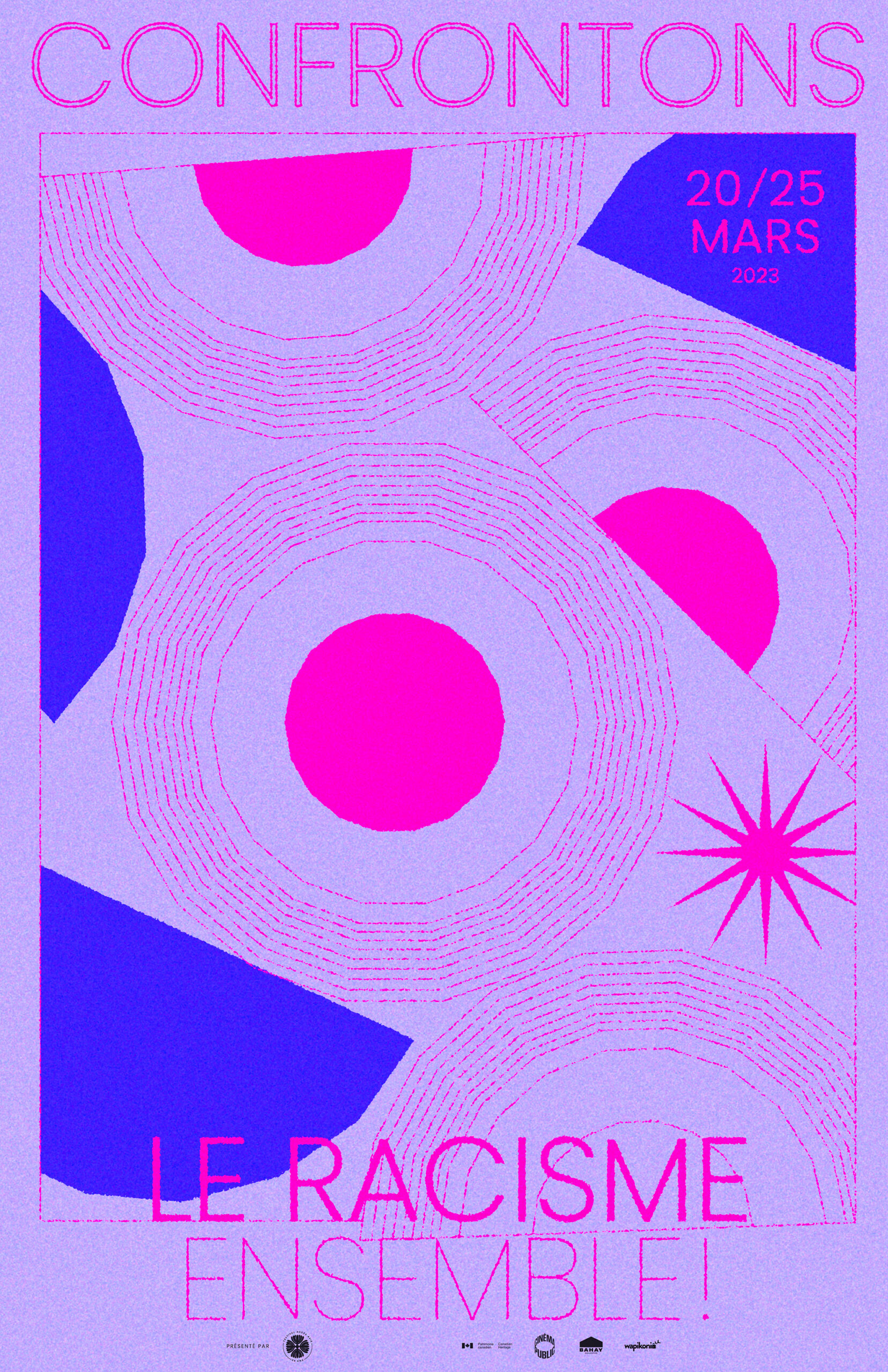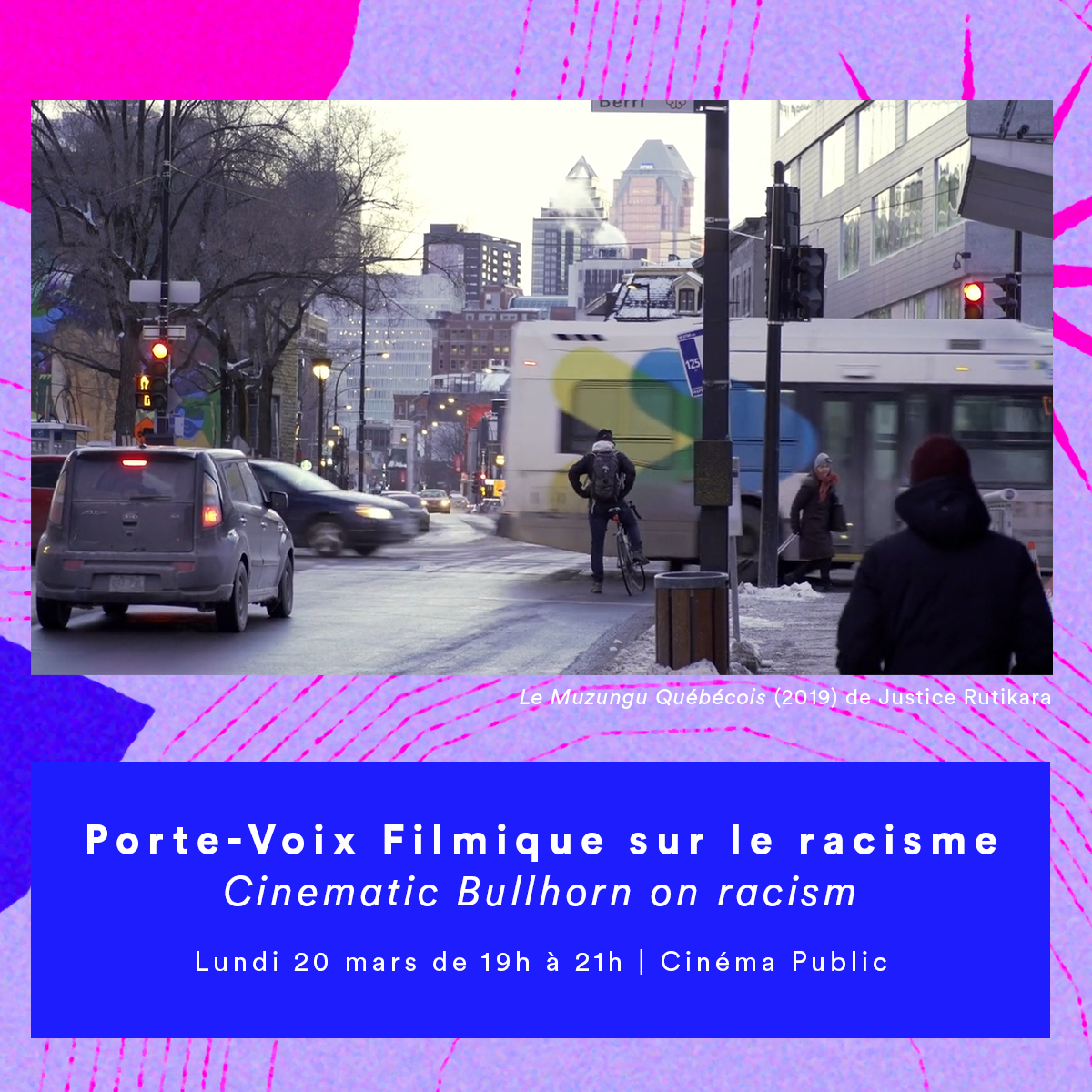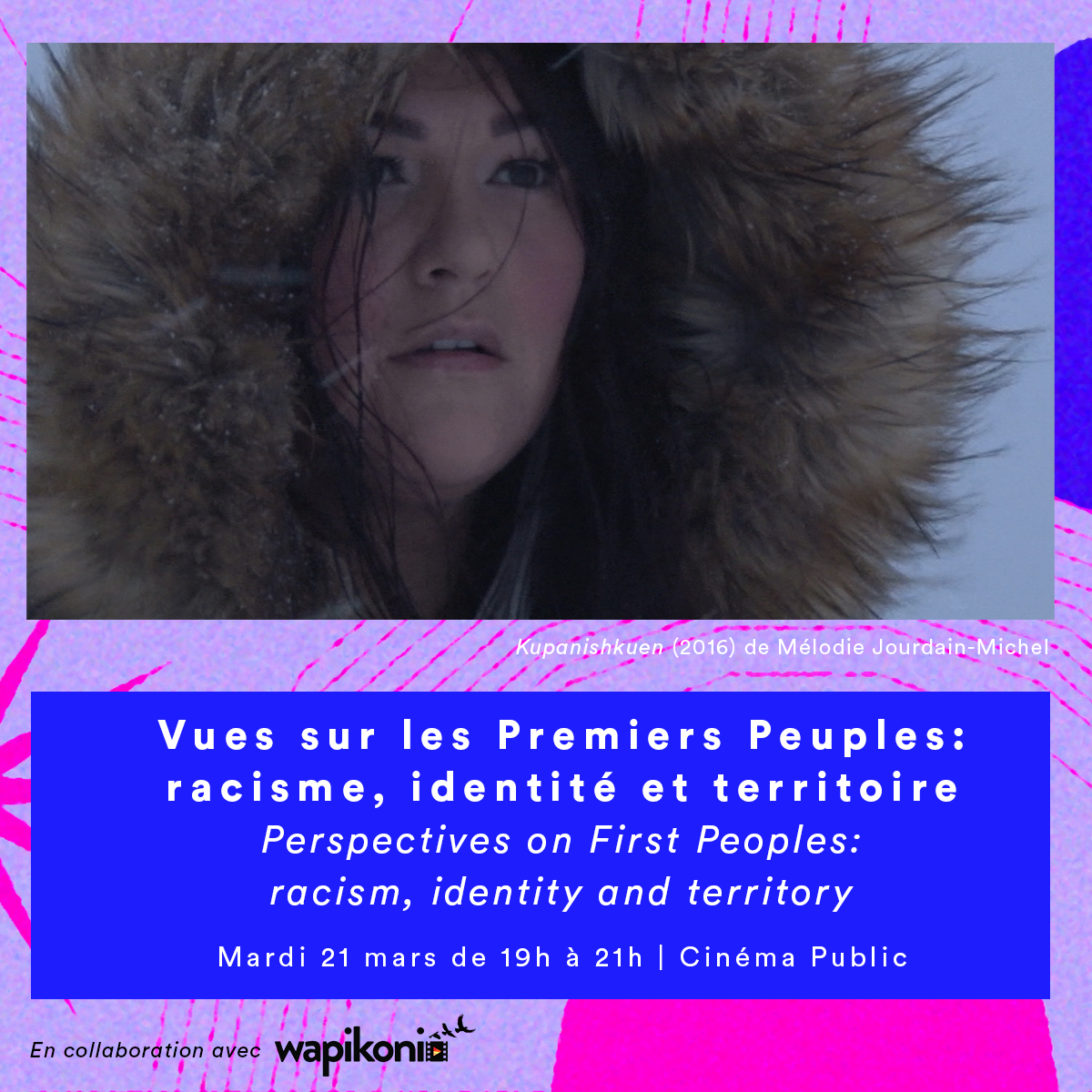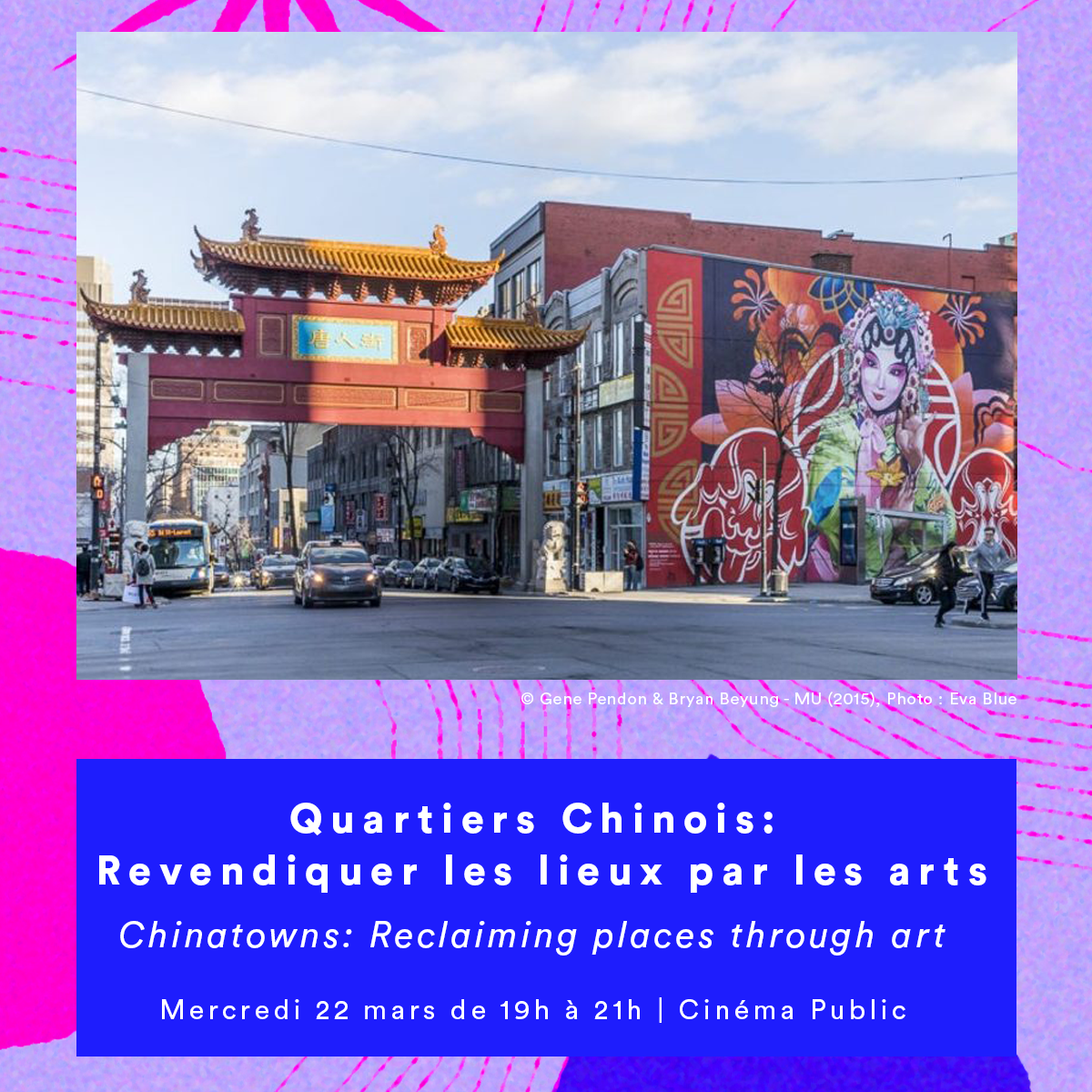Let’s confront racism together – 2023
On the occasion of the International Day for the Elimination of Racial Discrimination and the Action Week Against Racism in Quebec, the Festival is organizing its second edition of Let’s Confront Racism Together!
On the program, four activities that delve on the racism experienced by racialized and indigenous artists throughout their careers.
This project was born in 2022 from the rise of anti-Asian racism during the pandemic, in collaboration with the Super Boat People collective. In 2023, in collaboration with Cinéma Public, Wapikoni mobile and Bahay Collective, we are focusing this anti-racism component on the experiences of artists.
Monday, March 20, 2023 | 7 P.M - 9 P.M | Cinéma Public | Free
(Only in french)
This round table of four filmmakers will be preceded by a screening of one of their most recent short films on plural questions related to identities, territories and racism.
Le Muzungu québécois (2019) | Justice Rutikara
Nicknamed “the Muzungu of Quebec” by his mother, Justice Rutikara wanders through Montreal’s African microcosms and discusses, in a comical tone, the importance and paradoxes of the ethnocultural identities of immigrants and immigrant’s children in Quebec.
Nid d’oiseau (2022) | Nadia Louis Desmarchais
Lena, a 7-year-old black girl receives a drawing mocking her hair.
Rightly (Up)Rooted (2022) | kimura byol lemoine, Ange Guo, Jad Orphée Chami
At the heart of this project is our desire to (re)interrogate our relationship to the territory already shaped by our immigrant journeys, and to imagine new decolonial pathways to justice for indigenous and racialized people. We are not looking for a “solution,” but have taken this opportunity to build on our knowledge and deepen the connections we already have with the artists we have worked with.
Des voisins dans ma cour (2021) | Eli Jean Tahchi
Between Parc-Extension and the town of Mont-Royal, a scar in the space creates a strange dichotomy between two neighborhoods.
Moderator
Laurence Ly, Filmmaker
Participants
kimura byol lemoine, Multidisciplinary artist
Nadia Louis Desmarchais, Filmmaker
Justice Rutikara, Filmmaker, scriptwriter and actor
Eli Jean Tahchi, Filmmaker, scriptwriter and actor
Tuesday, March 21, 2023 | 7 P.M - 9 P.M | Cinéma Public | Free
(Only in french)
This compilation of works exposes different faces of racism, which for a long time has been at odds with the identity of First Peoples. Far from disappearing, racism is still rooted in our societies and manifests itself in everyday life, whether it is systemic or spontaneous. These films are proof of resilience and resistance in the face of marginalization.
Wamin (The Apple) | Katherine Nequado
Wamin means apple in Atikamekw. Red on the outside, white on the inside. It is an insult to people who leave their community to live in the city. A young Atikamekw shows that living outside her reserve does not make her another person than the one she really is.
Où sont tes plumes | Widia Larivière, Mélanie Lumsden
Two duos of sisters share their views on prejudice against First Nations with humor.
Pinatakushkuess |Gaëlle Mollen
L’Innu du futur | Stéphane Nepton
An ode to the land in relation to the duality of identity as an urban Indigenous person. A very personal and poetic story.
Du jour au lendemain | Shawn-Tamien McKenzie Vachon
From one day to another, they uncovered a weighty secret, that of the children found dead and buried. Shawn Tamien offers a tribute to all those children who left the world alone.
Kushtakuan (Danger) | Langis Fortin, Nemnemiss McKenzie
The position of the Innu community of Matimekush in the face of mining companies that are likely to restart mining on their territory.
L’enfance déracinée | Réal Junior Leblanc
A young Innu returns to the site of the Sept-Îles residential school, in operation from 1951 to 1972, to pay a poetic tribute to the victims.
Abinodjic Madjinakini (L’Amendement) | Kévin Papatie
Four generations. Three boarding schools. Two cultures. One extinction.
Kupanishkueu | Mélodie Jourdain-Michel
Director Mélodie Jourdain recounts how the strength and courage of her Innu ancestor, Kupanishkueu, influenced her life.
Encore vivants | Cherilyn Papatie
Planters of trees, planters of hope. A touching parallel that speaks of the resistance of the Indigenous community.
Je me souviens (I remember) | Frédéric Cheezo
A young native presents his metal music band. He is driven by a desire to express his emotions through his explosive percussion.
Tous humains | Vicky Moar-Niquay
Inspired by true stories, Tous humains is a personal film about the realities and prejudices experienced by Indigenous people in an urban environment.
Moderator
Véronik Picard, Researcher and columnist
Intervenant
Stéphane Nepton, Filmmaker
Wednesday, March 22, 2023 | 7 P.M - 9 P.M | Cinéma Public | Free
(French/English)
Artists engaging with Chinatowns in Montreal and Quebec City through their creative practice highlight the role of stories in reclaiming places or a sense of place.
Participants in this round table will discuss the ways in which they act as conduits or vectors for transmission of the stories and narratives of Chinatown through their art: Karen Cho through the film Big Fight in Little Chinatown, Léa Tremblay-Fong through the choreographic and social project Sit, Eat and Chew 五味杂陈, Maka and Komodo through their community builders’ perspective and finally, Geneviève Duong through the short film Rue de Xi’an which testifies to the disappearance of Quebec City’s Chinatown and which will be presented as an exclusive preview.
Moderator
Parker Mah, Multidisciplinary artist
Participants
Karen Cho, Filmmaker
Léa Tremblay Fong, Contemporary dancer
Geneviève Duong, Contemporary dancer
Komodo, Community builder and pleasure artist
Maka, Community builder
Saturday, March 25, 2023 | 4 P.M - 10 P.M | Ausgang Plaza | Fee
BAHAY ISLAND: An immersive Island experience. Come celebrate Bahay Collectives four year anniversary on March 25th at Ausgang Plaza from 4-10PM followed by an After Party at CAVE. Come hungry and enjoy our Filipino and Caribbean food offerings, brought to you by the best of the best in MTL. Bring your bikinis because we’re bringing the HEAT.
Activities, Immersive Setting, Live Performances & DJ set courtesy of DJ Apollo
This event is a collaboration between Festival Accès Asie and Bahay Collective. Our organizations share the common goal of creating space and opportunities for visible and underrepresented minorities.
Name of the artists : DJ Apollo and many others to be announced
Wave 1 18$, Wave 2 20$, Wave 3 22.50$, Wave 4 25$, Door 30$
Laurence Ly
Of Cambodian and Vietnamese origin, born in a refugee camp in Thailand and a Canadian citizen, Laurence Ly directed his first self-financed feature film Marche avec moi in 2014 with his friends for a summer. He returned to school to earn a master’s degree in 2017 in communication, cinéma et image en mouvement. In 2022, he graduated from Inis in directing and directed Les Lauriers (web series) and Correspondance (short documentary), both of which have been shown in local and international festivals. He is currently finishing the direction of the short film Le petit panier à roulettes which received a grant from the CAC and the CALQ and is also co-producing a genre short film, La plantation, which will be shot in the Dominican Republic with the support of the CALQ. Director, producer, screenwriter and videographer, Laurence is also a commissioner and film programmer for the Festival Accès Asie.

Parker Mah
Parker Mah (he / him) is a 4th generation Toisanese descendant, currently based in Tio’tia:ke. Multimedia artist, musician and DJ, his diverse body of work tackles themes and realities of migration, hybridization, and identity. He is also active in different cultural / activist spaces as a curator, moderator, trainer and community organizer. He is also the co-founder of the JIA Foundation.
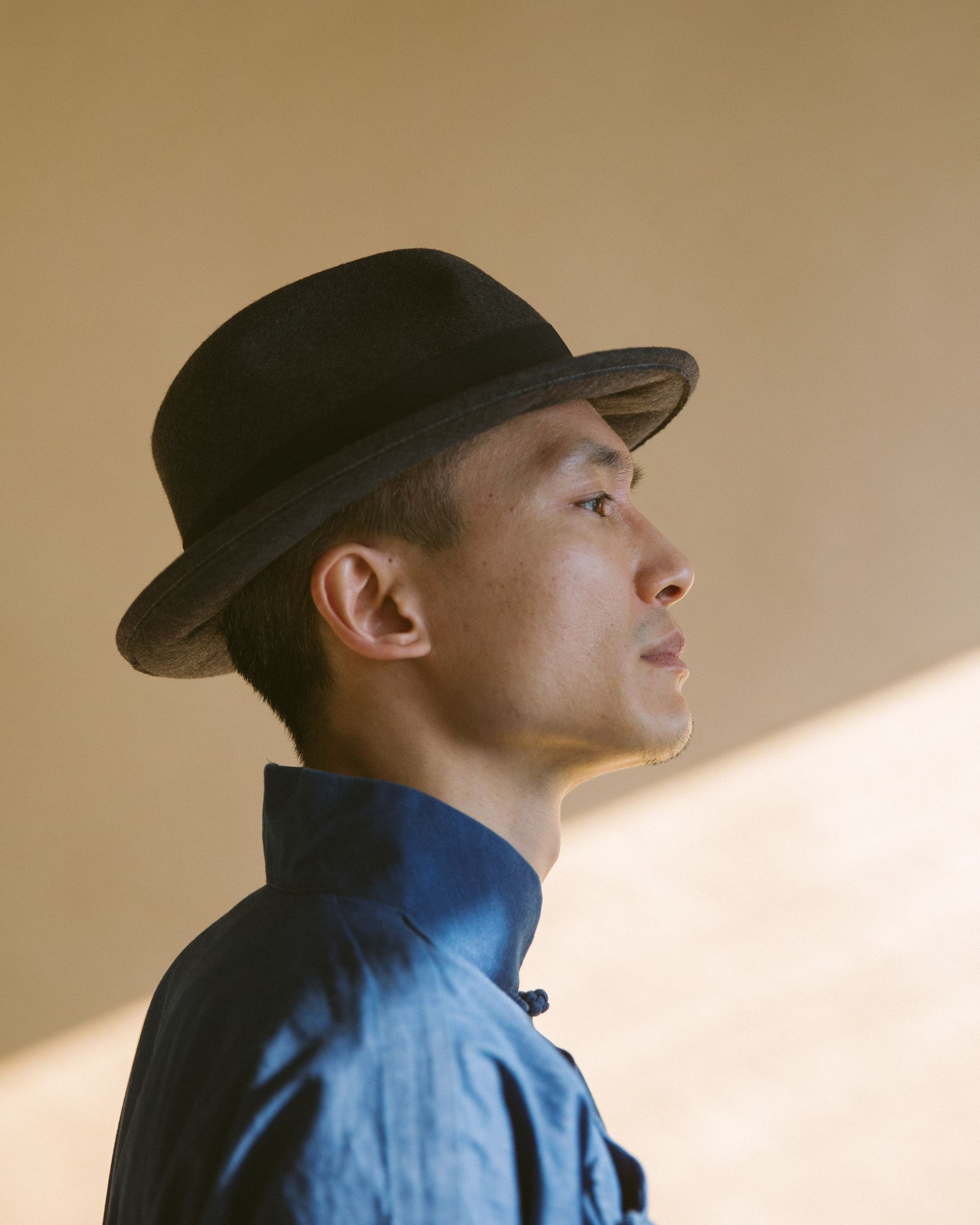
Véronik Picard
Véronik Picard is originally from the Wendake community and is now living in Tiohtià:ke/Mooniyaang/Montreal. With a bachelor’s degree in International Studies and Modern Languages, Véronik Picard has many years of experience within the Indigenous community as well as in the Quebec journalistic and media world. She worked for several years for Tourisme Autochtone Québec, then worked at the Canadian Consulate in Sydney where she supported Indigenous entrepreneurs wishing to export their product to Australia. She then worked as a journalist specializing in Indigenous issues for three years at Radio-Canada. Always looking for projects she is passionate about, Véronik Picard now works in the field of Indigenous arts and cultures as a researcher, writer, columnist and consultant.
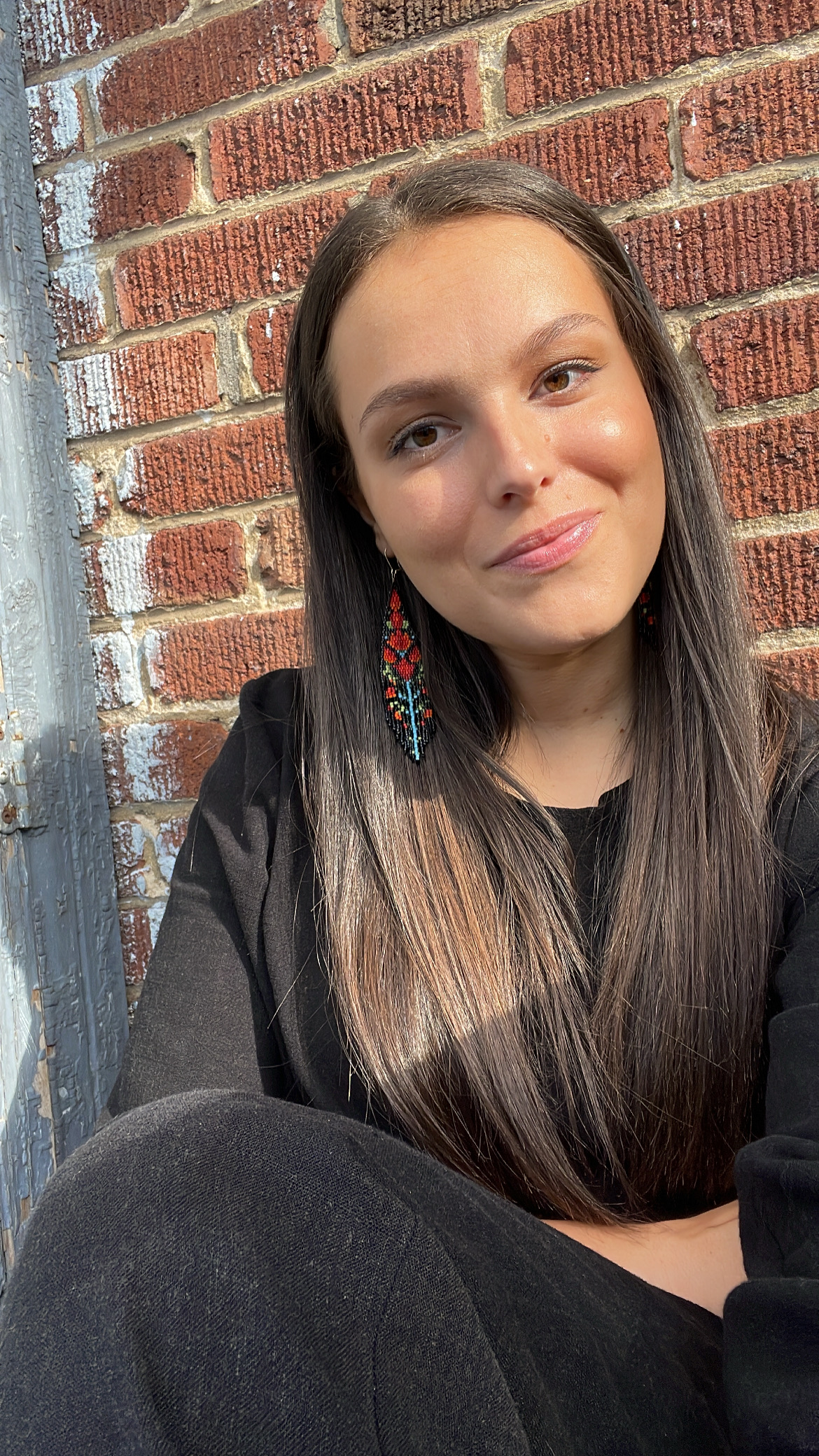
kimura byol lemoine
kimura byol lemoine is a feminist artist and commissioner who questions binaries and perceptions of identity – diaspora, ethnicity, colorism, post-colonialism, immigration and gender – primarily through the multimedia art of calligraphy, painting, writing and collaborations.
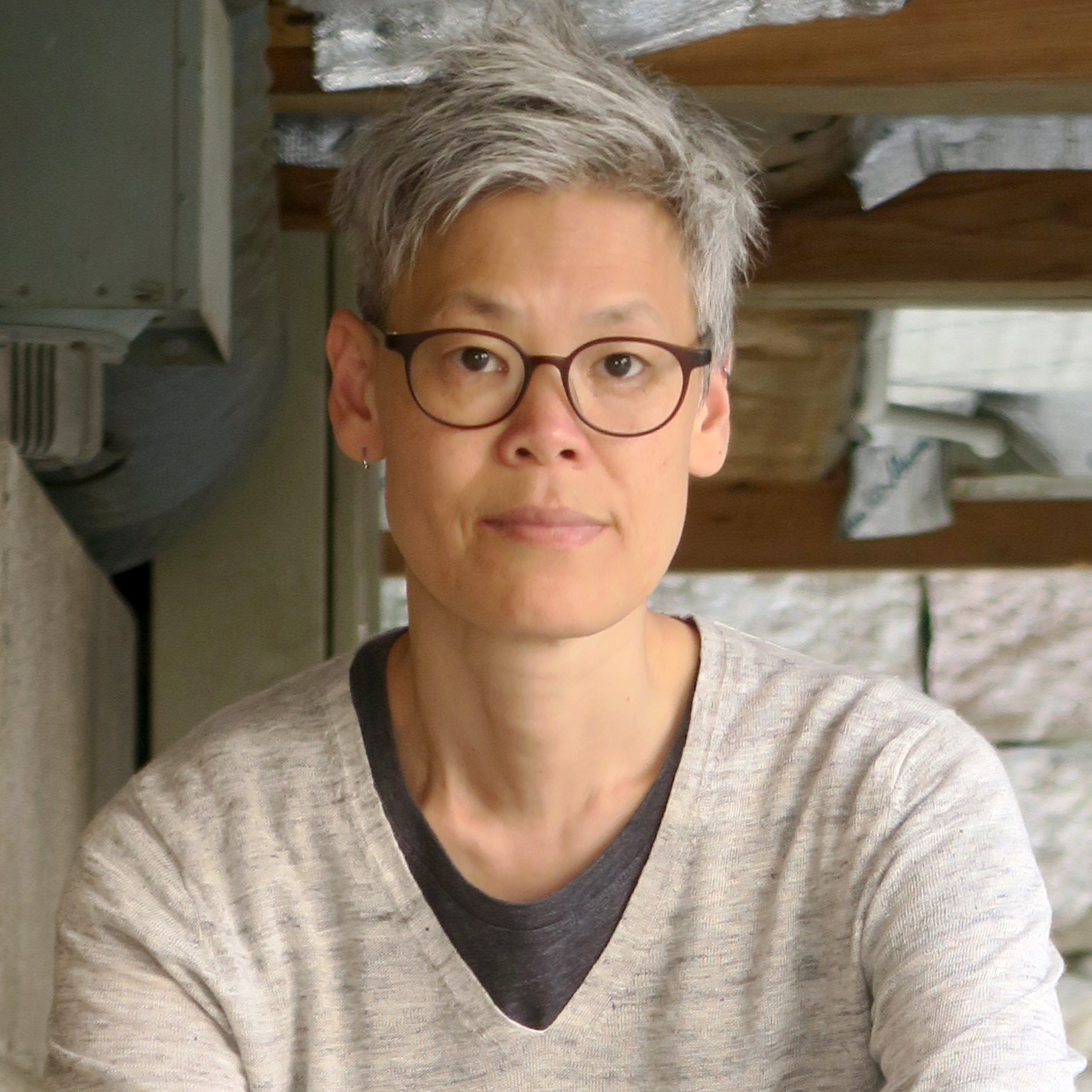
Justice Rutikara
Passionate about visual arts, Justice Rutikara has participated in the creation of several cinematographic and theatrical projects. After graduating in International Studies at the University of Montreal, he chose to write and produce cinematographic works through his notion of harmonic chaos. He has received the Prix de la Relève 2018 at the Course des Régions pancanadienne, the Prix Gémeaux de la relève 2021, and a nomination as best movie director of the year at the Gala Dynastie 2020.
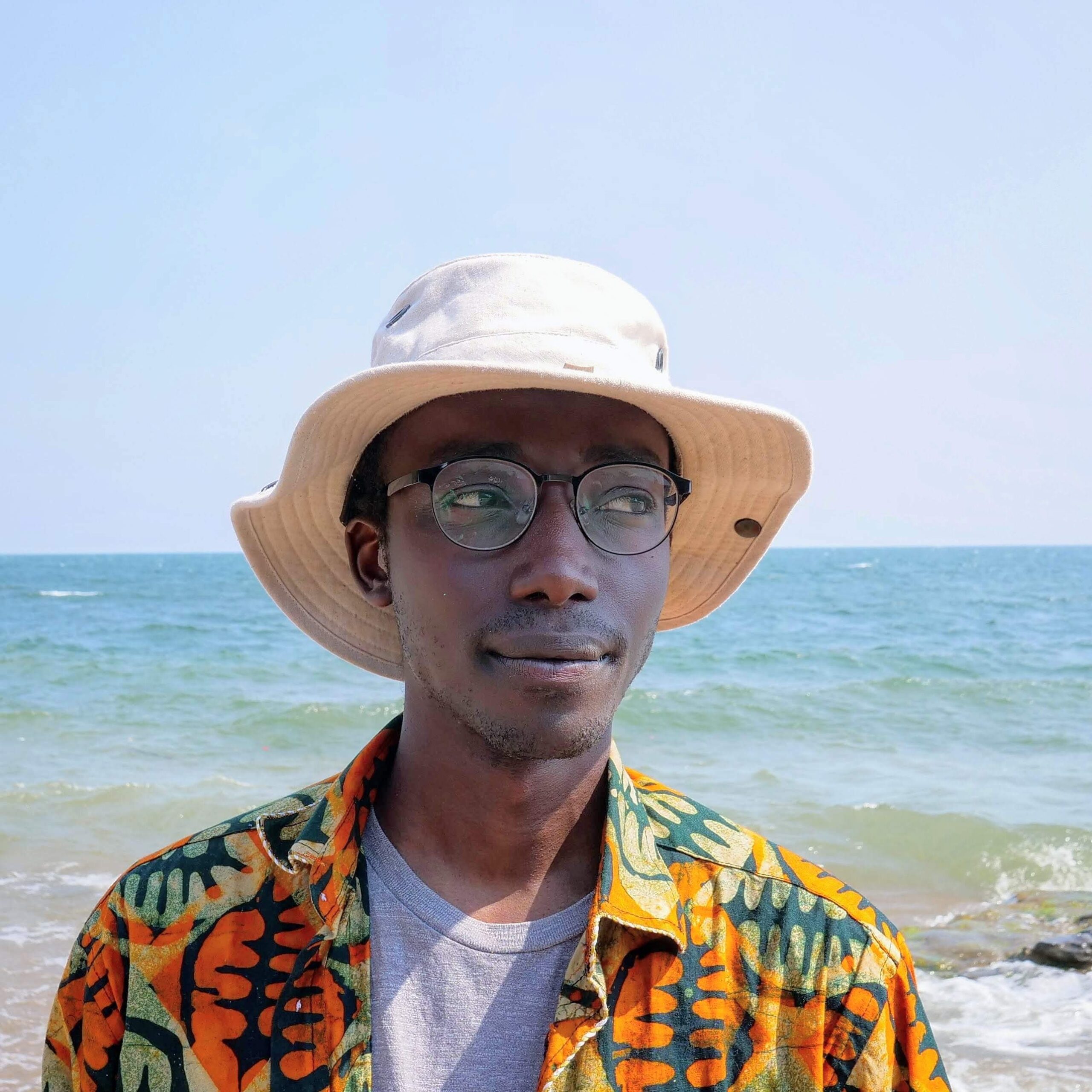
Nadia Louis Desmarchais
Nadia Louis-Desmarchais is a young afro feminist director who aspires to give a voice to those who are denied theirs. Moving from documentary to fiction, she directed Rated X, a short documentary which won the Grand Jury prize at the Vox Feminae Film Festival and showcased in multiple festivals such as Regard, RVQC, Filministes as well as Tell me all about my body and Urban. Her first fiction short film Troubled Water showcased at the FNC Film Festival, and VGIK International Student Film Festival. Putting forward a unique and deep sensitivity in her artistic approach, Nadia is eager to dive into the professional sphere to write and carry out intimate scenarios which, according to her, give the cinema its universal power.
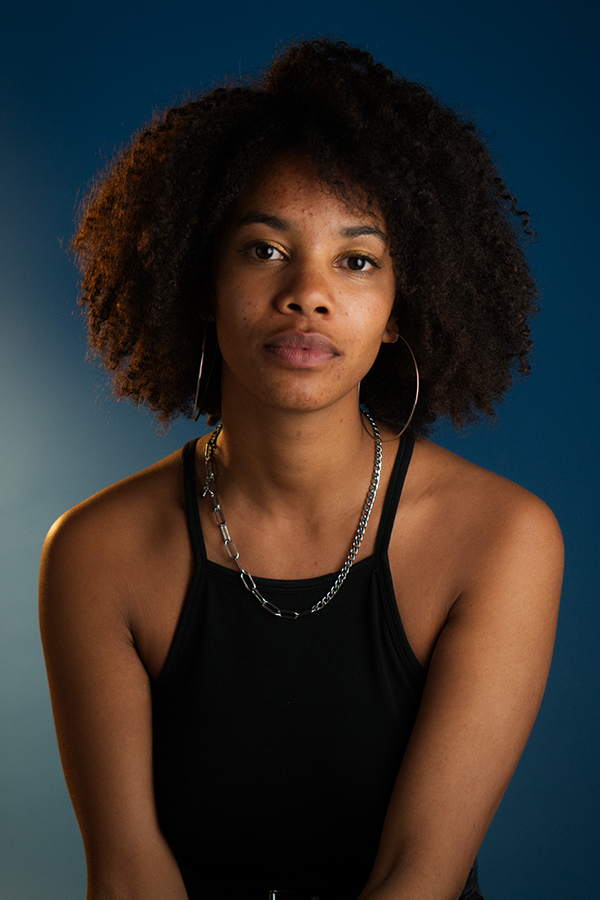
Eli Jean Tahchi
Eli Jean Tahchi is a graduate of the Mixed program funded by Netflix at the National Institute of Image and Sound (INIS) in Montreal. He is a director, screenwriter and actor. In Beirut, he studied cinema at the Lebanese Academy of Fine Arts and obtained a bachelor’s degree in film and television production. In 2011, he moved to Montreal and studied cinema at the University of Montreal, and finally, at INIS in directing. Eli Jean Tahchi’s politicized cinema is sharp, human and metaphorically charged. Since 2011, he has accumulated projects of various genres and cultural backgrounds. His film “There are times where I would like to be on a desert island” was nominated for the IRIS award at the 24th Gala Québec Cinéma, in the best short documentary category.
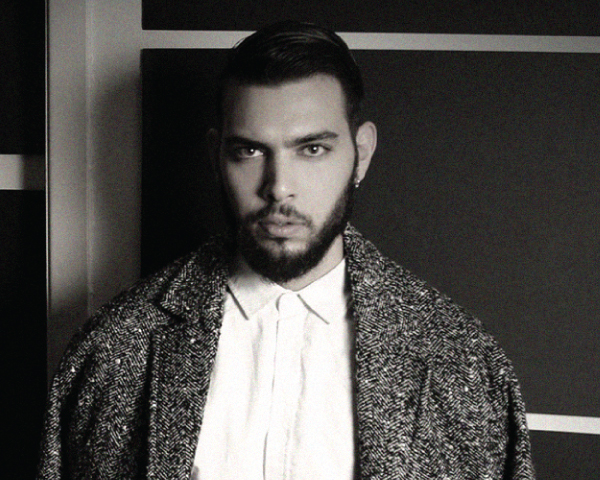
Stéphane Nepton
Stéphane Nepton was born on December 22, 1971 in Sept-Iles, he is from the Innu Nation of Mashteuiatsh. He has been a video game special effects and a digital artist for 22 years. Stéphane also co-founded Uhu labos nomades, one of his proudest achievements.
L’Innu du futur is his first short film straight out of the virtual studio of the Wapikoni cohort 2021. It is a very personal and poetic film, an ode to the territory in connection with his duality of identity as an urban Indigenous person. Cinema is for him a magnificent canvas to make room for his artistic self-determination in a decolonized space.
Karen Cho
Karen Cho 曹嘉伦 is a Chinese-Canadian filmmaker known for documentaries that explore themes of identity, immigration, and social justice. Karen’s first film, In the Shadow of Gold Mountain focused on the legacy of the Chinese Head Tax & Exclusion act. Karen’s other film credits include the Gemini-Nominated Seeking Refuge and Status Quo? The Unfinished Business of Feminism in Canada. Karen’s TV work has touched on subjects like, Indigenous health and wellness, Japanese internment, Quebecois cuisine, Vancouver’s downtown east side and artist activists around the world. In 2018, Karen was nominated for a Canadian Screen Award for her work on CBC’s Interrupt This Program.
Karen’s latest film, Big Fight in Little Chinatown, is a story of community resistance and resilience in endangered Chinatowns across North America. It premiered at Doc NYC, Reel Asian Toronto, and received the Prix du Public and the Women’s inmate Jury Award at Montreal’s RIDM festival in November 2022.
Karen has been involved with Montreal’s Chinatown Working Group, Progressive Chinese of Quebec, Coast to Coast Chinatowns Against Displacement & the Act2End Racism Network. She is also a co-founder of the JIA Foundation a non-profit concerned with storytelling and place keeping in Montreal’s Chinatown.
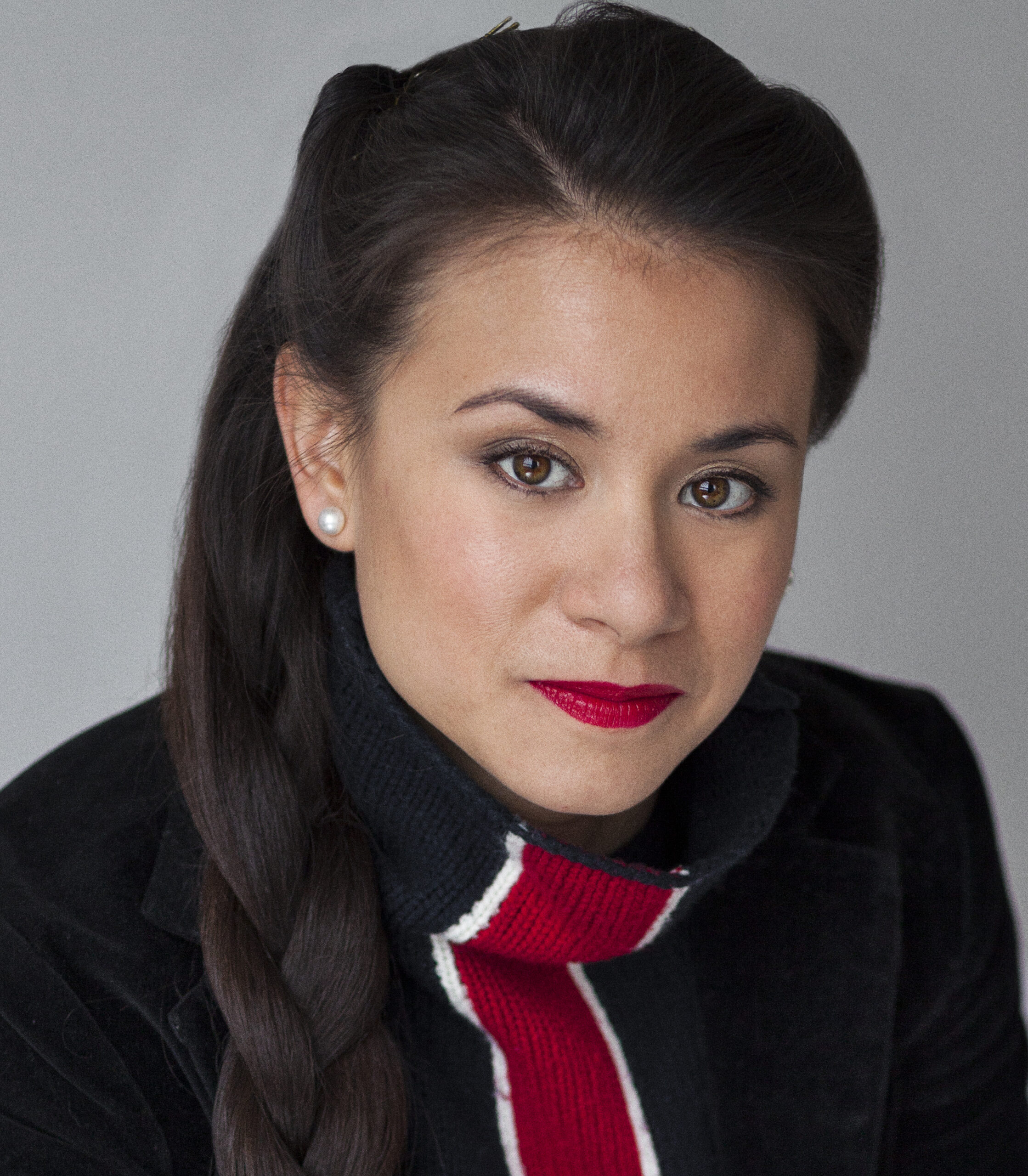
Léa Tremblay Fong
Of Chinese origin, born and raised in Quebec, Léa Tremblay Fong is a choreographer and performer of contemporary dance. She creates and distributes her work directly on the street and in living environments, where she builds bridges with a diversity of people and communities.
From 2006 to 2011, she completed a Honours Double Major in Dance and International Development Studies at the York University of Toronto while simultaneously directing several multidisciplinary and intercultural creative projects in Toronto and Israel/Palestine. Since the winter of 2012, she has been pursuing her work and artistic learning mainly in Montreal.
The artist chooses to practice her art outside the studio, exposed to impromptu interactions. Driven by a strong desire for social commitment, Léa is inspired by the free and assertive spirit of the street, street dances and the architectural environment. Her creations probe the memories, tensions and social ties at work in our communities and have been presented in Montreal, Ramallah (2015) and Taipei (2016).
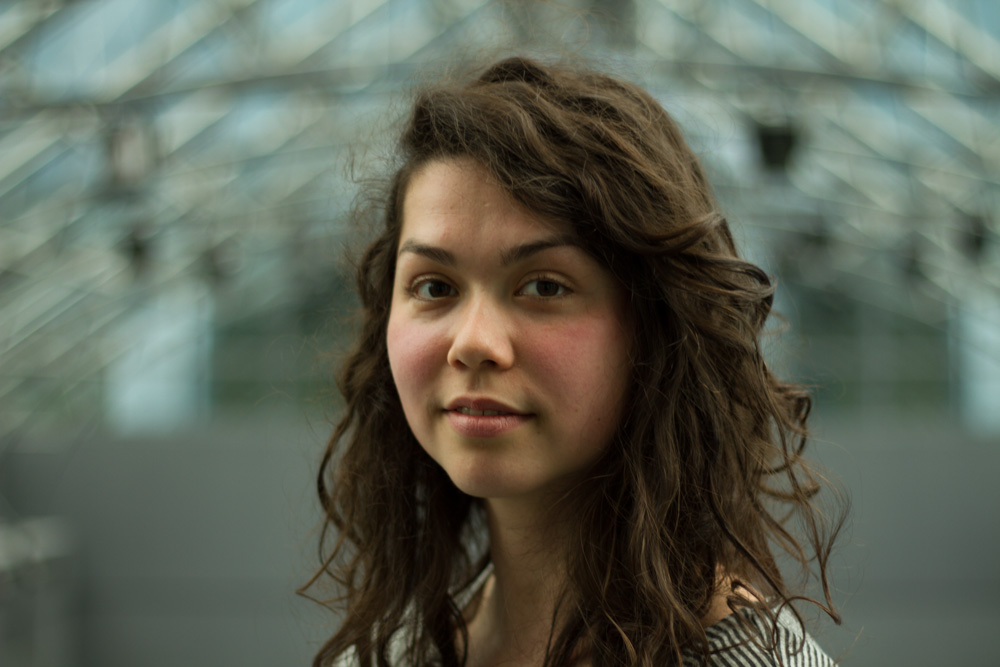
Geneviève Duong
Geneviève Duong’s collaborations and creations (2012-) are opportunities to deepen one’s reflection on how to engage the body in dialogue with the built and natural environment. Her tricultural heritage, Vietnamese, Argentinean and Quebecois, encourages her to create artistic experiences centered on the actualization and valorization of Quebec culture and heritage sites. Félix: l’alouette en liberté (2019), a multimedia concert co-created with the Orchestre symphonique de Gatineau in tribute to Félix Leclerc, reflects this interest. For the past 10 years, she has been working through various practices, including production, choreography, interpretation, performance, cultural mediation, programming and teaching. She is a member of the boards of directors of Le Moulin des Jésuites (2021-), Interférences, arts et technologies (2022-) and Les sans-papiers (2022-). She is a member of the 2009-2012 cohort of L’École de danse de Québec.
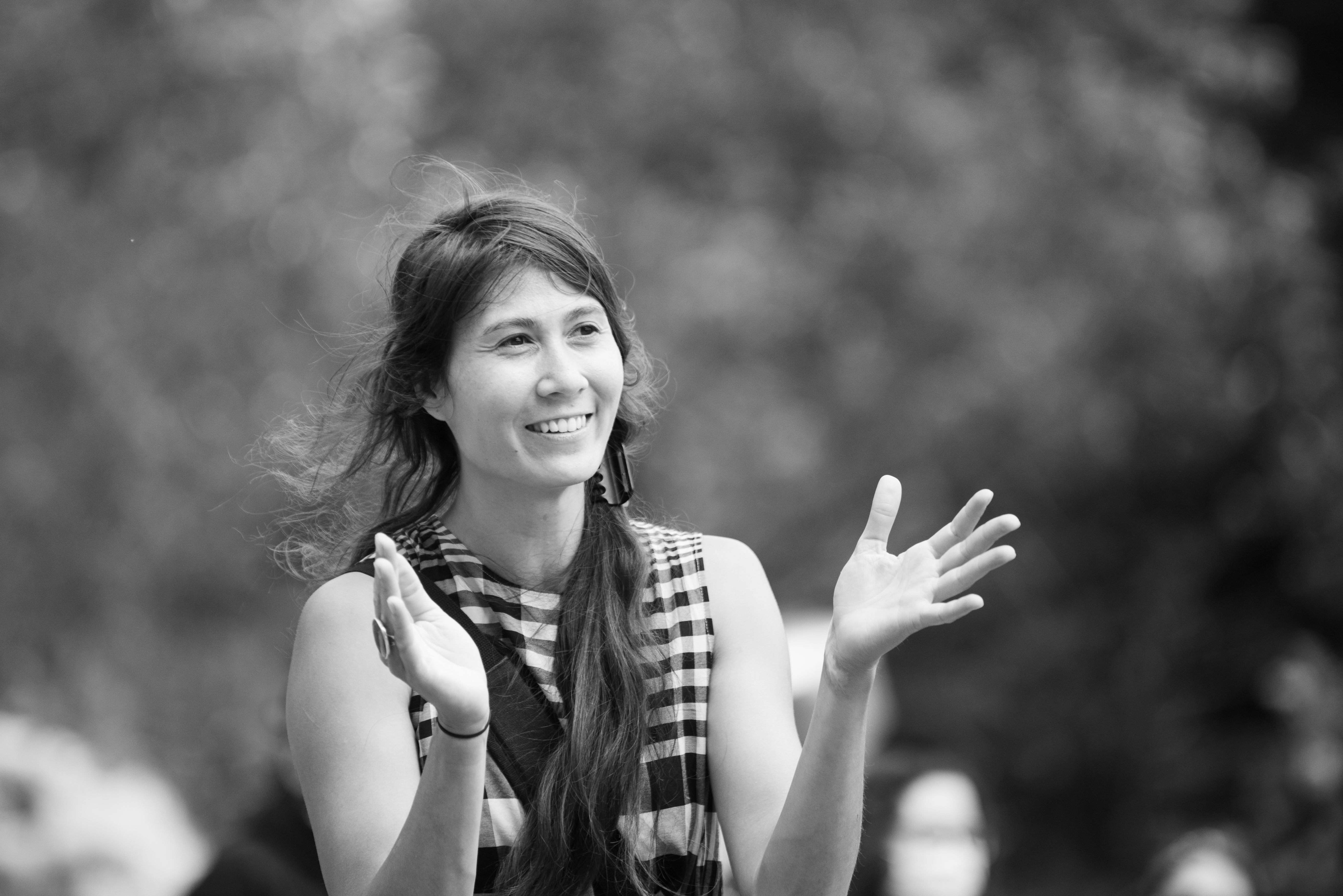
Komodo
Komodo (they/them) is a community builder and pleasure artist, blending their cultural roots and erotic expression to contribute a Bruneian Chinese Canadian voice towards the global renaissance of queer Asian culture. He believes that having compassion for yourself and for others will enable humanity to be more resilient against their own fears and suffering.

Maka
Maka is a graduate from Concordia University with a bachelor’s degree in Philosophy. She started the @mychinatownmtl Instagram page in 2021 in response to the anti Asian racism Chinatown faced during the peak of the pandemic in hopes to raise awareness of gentrification, xenophobia, and racism Chinatown and Asian folks experienced. She recently co-created a zine called “Pass the Nước Mắm” which is now sold out. During le cœur d’île de Montréal summer festivities in Chinatown, Maka co-hosted and co-produced two comedy shows “Chinatown Comedy Nights’ ‘, and co-organized a Mahjong night that included elders and young people learning to play mahjong.
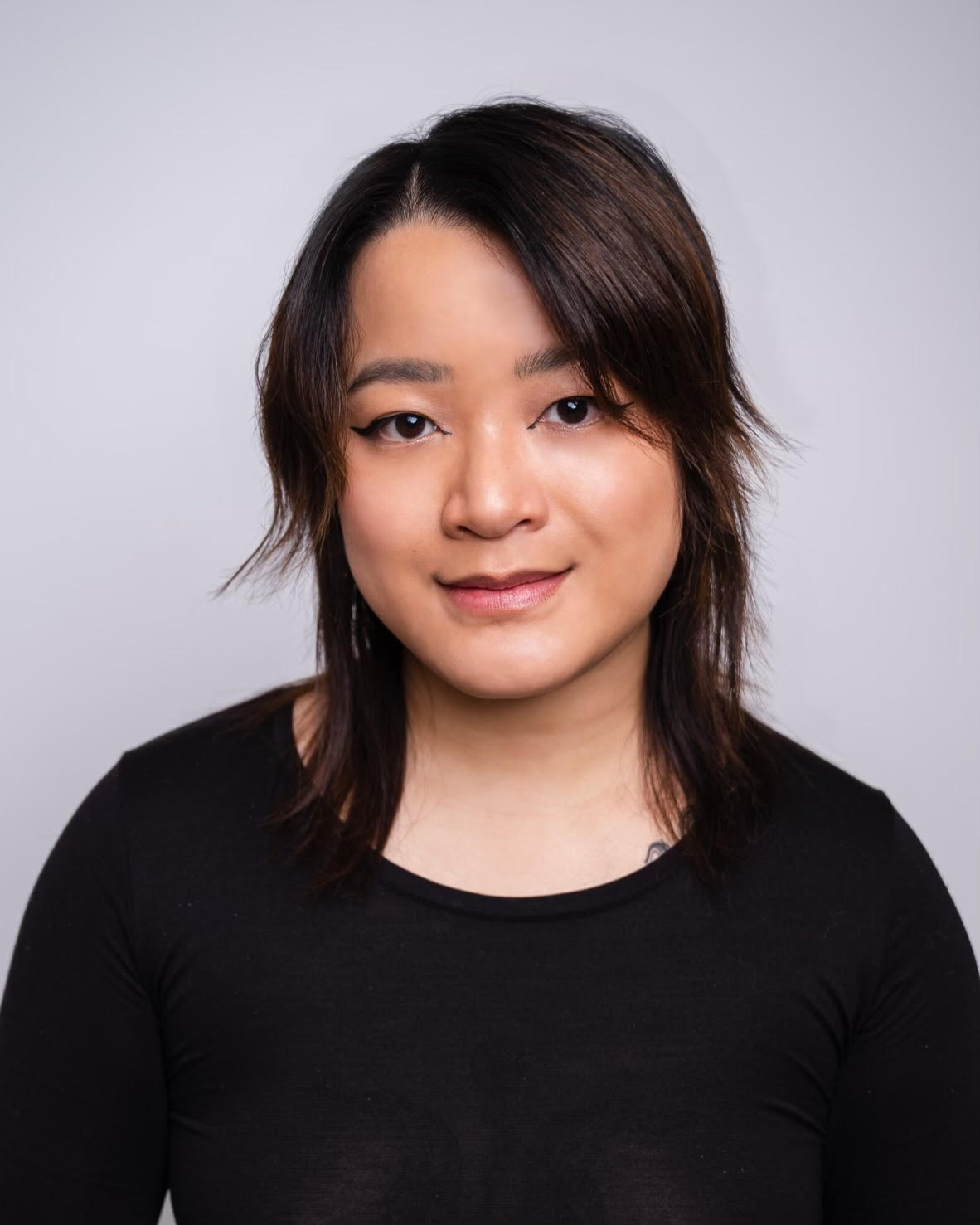
With
kimura byol lemoine – Multidisciplinary artist
Nadia Louis Desmarchais – Filmmaker
Justice Rutikara – Filmmaker, scriptwriter and actor
Eli Jean Tahchi – Filmmaker, scriptwriter and actor
Laurence Ly – Filmmaker
Véronik Picard – Researcher and columnist
Stéphane Nepton – Filmmaker
Parker Mah – Multidisciplinary artist
Karen Cho – Filmmaker
Léa Tremblay Fong – Contemporary dancer
Geneviève Duong – Contemporary dancer
Komodo – Community builder and pleasure artist
Maka – Community builder
Bahay Collective – Producers
